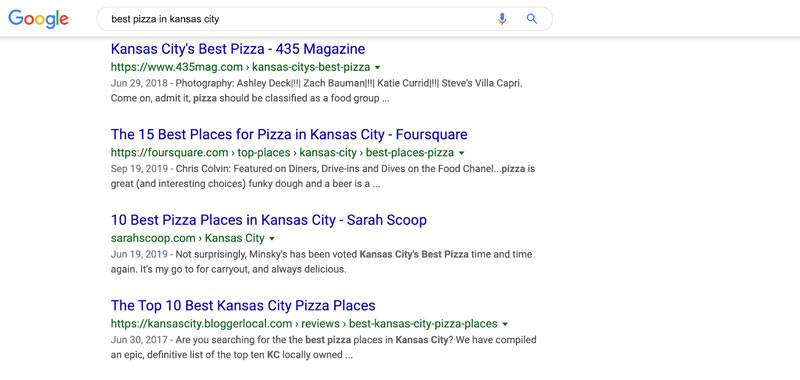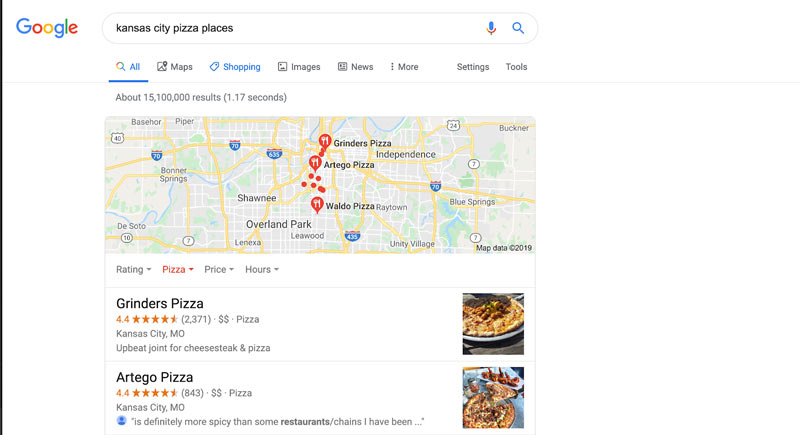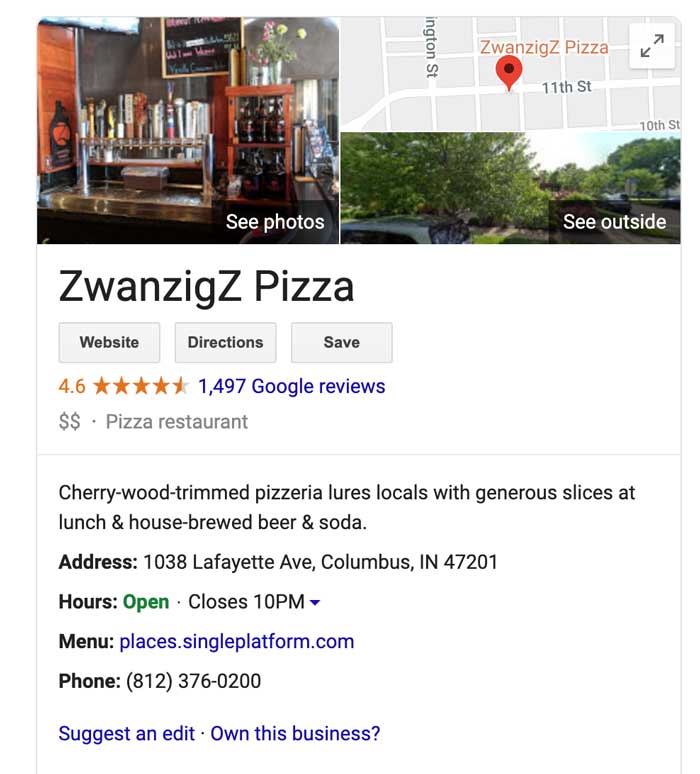
It’s no longer optional to have a strong online presence for your restaurant. Consumers want to be able to locate you quickly and simply on various platforms.
One way to boost your online presence? Restaurant SEO.

For more SEO services you may want to check article: SEO for Car Rentals.
Because internet ordering and food delivery disrupt the traditional restaurant business model, your online profile is especially essential. Online ordering is bringing in 130% more money for restaurants that use it, and the number of people using it is increasing by 300%. Plus, 60% of diners are looking at a restaurant’s menu online, and 50% are checking the website.
Restaurant owners have begun investing time in search engine optimization, also known as restaurant SEO, to guarantee that their businesses appear on Google and other search engines.
Although SEO may appear to be complicated, it doesn’t have to be! There are several easy strategies you can take today to make your restaurant’s online presence a major traffic draw.
In this article, we’ll go over:
- What is SEO?
- The benefits of using SEO best practices for your restaurant
- The top seven tips to help your restaurant rank at the top of search results
Table of Contents
What Is SEO?
SEO, which stands for search engine optimization, is the process of optimizing a website to appear in search results on Google, Yahoo, and other search engines for terms related to your core business. This procedure aims to increase the number of visitors to your site. More people, more potential consumers.
If you own a pizza shop in Kansas City, for example, you’ll want to make sure your website is optimized for phrases like “pizza parlor in Kansas City” or “Kansas City’s Best Pizza.” If your site is properly optimized for the keywords that customers are searching for, it will appear on Google’s first page for those important terms or keywords. As a result, they’ll be more inclined to click on your site – and visit your restaurant in person. Especially if you have online ordering or reservations on your site.

The Benefits of SEO for Restauranteurs
Although restaurant SEO is a long-term investment, there are several advantages for your business when you invest the effort. Some of these benefits include:
- Increasing traffic coming to your website
- Increasing online orders and reservations
- Building brand awareness
- Increasing customer engagement
- Helping you make more money
You may also leverage these benefits in your overall restaurant marketing strategy if your establishment shows up for related keywords, such as our pizza parlor example. Customers will be more likely to visit your restaurant if it is listed on Google Maps and other prominent search engines.
SEO acts as an on-ramp for your restaurant business – an evergreen, organic (i.e. free) channel for new customers and growth.
7 Restaurant SEO Tips to Help Your Website Rank #1
There are dozens of strategies for increasing the ranking of your website in search results, but it’s all based on a metric that Google keeps secret. There’s no way to know what exactly goes into the number one spot.
That said, Google has provided a decent idea of the technique.
In this section, we break down the core strategies and advice SEO experts use to optimize websites. Here are the best tips for your restaurant.
1. Create a Keyword Planning Roadmap
The first step a restaurant should take is to establish an SEO strategy for its website.
But what is keyword planning?
Keyword research involves determining the ideal search phrases for your restaurant’s website. These can be single words (i.e. “wings”) but are more likely to include two, three, or more words (“best chicken wings in Houston”).
After you’ve determined the target keyword, you may use a free keyword planning tool to generate other similar keywords. The Search Intent tool can assist you in determining which keywords to focus on and how to prioritize them. The number of people (on average) who search for that term every month is used to rank them.
Here are some keyword planning tools that are either free or offer free trials:
- Google Keyword Planner
- Dragon Metrics
- SEMrush
When looking for keywords, it’s helpful to categorize your targets into three categories. These are broad restaurant terms, specific keywords, and branded keywords with high intent.
- High-intent broad restaurant terms: These are broad and important phrases, such as “restaurants in Kansas City,” “top Kansas City restaurant,” etc.
- Niche keywords: Niche keywords are relevant to your restaurant’s services. Consider phrases such as “pizza parties Kansas City,” “pizza game day discounts,” and so on.
- Branded keywords: This is what you’re aiming for if you have a restaurant with the same name. It’s not unusual for eateries to avoid holding the initial few results for their restaurant name and instead have Yelp appear first.
Examine the phrases you believe are most essential to your restaurant showing in search results, then use the keyword planning tool to verify that people are searching for these terms.
Next, make a list of potential customers coming to your restaurant. Look for keywords specific to this demographic, which will aid you in identifying pain areas for each one.
Here is an example for our pizza parlor:
Potential Customer Potential Keywords: Parent taking family out to dinner“pizza family deals”
“dine-in pizza specials”
“family-friendly pizzeria”
“family dinner Kansas City” Mid-20 person looking for a spot to watch a football game with friends“ pizza places that serve beer”
“sports pub Kansas City”
“where to watch the game Kansas City”
“game-day specials Kansas City”
“game-day pizza delivery Kansas City” Parent looking to have a pizza party for child“ pizza parties Kansas City”
“group deals pizza parlor Kansas City”
“kids birthdays Kansas City”
In the same way, you’d want to compare keywords in keyword research tools to ensure that you’re optimizing for terms that are being searched.
Restaurants may use keywords in their early planning to lay a foundation for long-term development and success by focusing their efforts on those terms that provide substantial value to the company.
2. Optimize for Local SEO
Google altered its local search results from 2004 through 2006, altering the way that they were displayed to consumers and affecting how people found businesses.
Because of this, location-based search almost always displays results with the Google Map pop-up screen.

Adding your restaurant’s website to all directories, review websites, and social media platforms with the same consistent corporate information is wonderful – and simple! – way to optimize for these outcomes.
Start with adding your business information to pages like:
- Google My Business
- Yelp
- Foursquare
- TripAdvisor
- Yellowpages
 Restaurant SEO tips
Restaurant SEO tips
All of these factors work together to support your brand’s appearance and identity while also demonstrating that your restaurant is a trustworthy business to Google. This idea will also act as a type of protection against your main competitors in the neighborhood since your restaurant may appear before theirs.
3. List Your Restaurant on Review Sites and Encourage Reviews
Reviews have been found to improve the CTR (click-through rate) of search results. It’s all about more consumers. -> It’s all about greater potential clients again.
When Google ranks local search results, it takes into account customer reviews. In numerous local search results, Google displays the highest-rated restaurants and enterprises. Google may also display your restaurant’s rating on the search results page, allowing you to attract more consumers.
Is there another incentive for you to work on improving your ratings? According to the research by Touch Bistro, “How Diners Make Restaurant Choices,” 68 percent of restaurant-goers say they visit a new completely based on enthusiastic online evaluations. That’s a lot of new traffic!
4. Get Other Websites to Link to Your Restaurant’s Website
Online reviews also aid in the development of links, another component of search engine optimization.
If you have a marketing expert on your staff, consider going above and beyond reviews by utilizing link building to improve your search performance.
So, what is link building?
Link building is the strategy of getting other websites to link back to your site.
Why is link building important for restaurant websites?
When other websites link to your restaurant’s website, it indicates trust and informs Google that your site is an authority on the subject of whatever page the linked site is about. Consider it in the same way that LinkedIn Endorsements work: for each link to your site, Google sees it as another endorsement.
The more links you have from other reputable sites, the more your site will appear in Google searches for relevant keywords.
5. Make Your Website Mobile-Friendly
The majority of the world’s population, about 80%, uses their mobile device to access the Internet. The number of people with diabetes in the United States is expected to rise over the next decade. People are still using laptops and desktop computers to browse the internet, but the number of people surfing from mobile devices is increasing.
So what does this mean for your restaurant’s website?
In 2018, Google made a major change to its search algorithm in response to the growing popularity of mobile searches. Now, your site’s mobile view is more essential than its desktop version.
The bottom line is that non-mobile-friendly websites are less likely to appear in search results.
So how do you make sure your site is mobile-friendly?
If someone else builds or updates your site, confirm with them that your design is “responsive” so the content on each page adjusts to the screen size of the visitor’s device.
Consider using a responsive framework when developing or improving your website if it is DIY. Many popular WordPress themes now come pre-installed with responsive frameworks, allowing visitors on both mobile and desktop devices to view the website in the same manner.
6. Test Your Online Ordering System
With the growth in popularity of internet ordering, it’s no surprise that many restaurants have implemented an online ordering system on their website.
It’s just as critical to get it right when it comes to online ordering, and just as crucial to make sure that ordering is simple for customers – or else they’ll abandon their shopping cart for a simpler process at another restaurant.
This, of course, is a revenue and client loss for businesses. It’s also affecting your search engine rankings. When a user is dissatisfied with a website, Google understands and removes it. The search engine gives preference to websites and pages with fewer bounce rates.
The next step is to test your website with real customers. You can develop your ordering system or hire a website developer or a UX designer to assist you, but be sure that all users go through the process in its entirety. This way, you’ll know the procedure is running smoothly – and without hiccups or perplexity.
7. Launch a Blog
A typical restaurant has a single page, usually with the following items: a home page, about us, menu, upcoming events information, contact information, and perhaps a review webpage.
But what about a blog?
Consider including a blog on your site if you have someone on your marketing team who would like to spend more time and effort on search engine optimization. It might assist you in improving search rankings, increasing web traffic, and expanding your customer base.
What would a restaurant write about? Well, that’s where we get a little creative.
You might write about subjects that are important to your restaurant’s mission statement, such as using locally sourced ingredients or contributing to the community. You may also use the blog to announce new marketing initiatives. Perhaps you’re organizing a series of trivia nights or open mics for live music – consider writing about it! What if you’re opening a pop-up restaurant and want to get the word out? Your establishment may publish an essay on the finest pop-ups in your area, with yours as number one.
These seven suggestions can help you lay a solid foundation for your restaurant SEO, allowing new money and attention to your company. The solution is to figure out how to deal with all of that extra business coming through your doors!



CONNECT WITH US!!